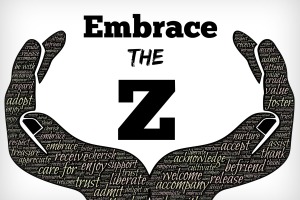Sometimes it’s nice to be able to pay your rent to family because there is a mutual trust that already exists between tenant and landlord. It’s even better when you can buy your home from a family member. This is one of the cases where you can buy a home with zero down payment with use of a gift of equity.
In this article we’ll go over everything you need to know about how to buy a home from family with a gift of equity and zero down payment.
What is a gift of equity?
A gift of equity refers to the gift provided by the seller to the buyer in the form of existing home equity. In this type of scenario there is no exchange of funds. The seller simply agrees to take less net proceeds at closing, which allows the buyer to have instant equity while providing no down payment.
These types of transactions are common with parents who are selling their home to their child.
Here is a basic example:
Jimmy has been renting from his parents for 2 years. Paying rent on time faithfully every month.
Instead of putting their home on the market, they agree to sell their home to Jimmy.
The home is worth $200,000 and his parents are looking to sell their home. They are only looking to net $150,000 out of the sale, which means they are willing to provide a gift of equity of $50,000. When the transaction gets to the closing table, instead of little Jimmy coming out of pocket 50K for down payment, the gift of equity is done. This means that he now owns a home that already has 25% equity.
What about closing costs?
Being able to do zero down payment with a gift of equity is nice. But what about closing costs and escrows for taxes and insurance? Good question, glad you asked.
The nice thing about dealing with family is that you can talk things out and get a clear understanding of what the proceeds need to be. In other words, the parent and child can clearly communicate how much funds the parent needs to get at closing for this to make sense for them.
Once that is clearly understood, the sale of the home can be structured in a way to benefit all parties involved with complete transparency.
The way to get closing costs paid for without the buyer having to cover the costs is by adding seller concessions (or seller contributions) to the formal purchase agreement. This is where the seller gives a credit toward the buyer’s closing costs and escrows.
In many cases the seller credits can be up to 6% of the purchase price of the home. Which means that if the sale price is $200,000, the allowable seller concessions can be as high as $12,000. That amount should be more than sufficient to cover costs and escrows. This obviously can vary depending on how much real estate taxes are in your area
So let’s take a look at how that would apply to the case with Jimmy…
Same price as above, at $200,000. Instead of giving a gift of equity of 50K, the parents give a gift of equity of 40K. But now, on the purchase agreement they agree to provide $10,000 in seller concessions.
In this case the loan amount would be $160,000. The sellers still get net proceeds of $150,000, AND the buyer didn’t have to come out of packet to make it happen. It’s a win/win. The loan amount is $10,000 higher (roughly a $50/month difference in monthly payment), but the buyer didn’t have to deplete is assets to make it happen.
Seller concessions are basically a way to finance the costs. They’re really just a matter of structuring the purchase agreement properly to meet everyone’s goals.
Important things to keep in mind.
Appraisal – The only way a gift of equity works is if there is actual equity that already exists. The lender is going to order an appraisal to get an opinion of fair market value. If you’re trying to sell your home for $200,000, but it only appraises for $150,000 then the gift of equity amount needs to be revisited, and the purchase agreement needs to be restructured accordingly. [more on appraisals here]
Documentation – The lender is going to need to verify everything (just like a normal purchase of a home). If the child has been renting, there needs to be legitimate proof of rent. If the child gave a deposit of any amount at the beginning of the lease, there is going to need to be a paper trail.
Acceptable Donor – When dealing with a gift of equity scenario, the seller an buyer need to be related. Here is the definition of an acceptable donor with regard to a gift:
“A relative, defined as the borrower’s spouse, child, or other dependent, or by any other individual who is related by blood, marriage, adoption, or legal guardianship; or a fiance, or domestic partner.”
As you can see, there is a little bit of room for discussion on that. There is a grey area. There are endless “what ifs” on this topic of “related”. Bottom line, don’t try to pull a fast one on the underwriter. If you’re trying to do a gift of equity, it needs to involve a clear relationship like parent/child for example. Otherwise, there is a chance an underwriter could shoot it down.
Conclusion
Buying or selling a home with the use of a gift of equity can be a very advantageous route to take for a buyer and seller. The buyer doesn’t have to provide a down payment. The seller gets the piece of mind of helping their family achieve the dream of home ownership while getting the proceeds they are seeking.
As always, transparency and communication is key to make the process as smooth and painless as possible.
I invite you to reach out.
Get your questions answered.
If you’re running into any challenges with getting this type of scenario put together, or the buyer doesn’t quite meet normal lending guidelines, you’re welcome to reach out to me with your specific questions.
You won’t be connected with an intern or someone in a call center, you will be connected with me directly.
If I cannot help, I should be able to point you in the right direction at the very least.












31 Comments
Leave your reply.